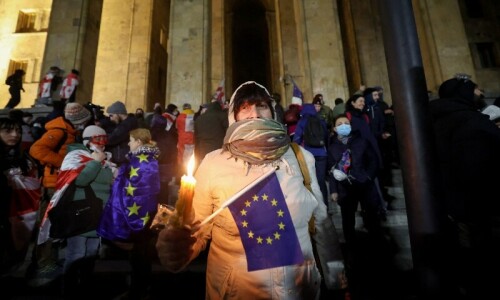Hyderabad was the largest among some 560 princely states that existed prior to Partition. It was almost as large as Italy or Great Britain, had its own coinage, postal system and railway. In a clever move, the British did not make the princely states part of their Indian empire but signed treaties with them that effectively curtailed their autonomy. For instance, Hyderabad’s ruler could not appoint a prime minister without the Viceroy’s consent. By the end of 1949, all of these states, except Sikkim, had either acceded to one of the successor states, or were conquered and annexed by them.
In his latest book, The Destruction of Hyderabad, noted Indian lawyer, historian and columnist, A.G. Noorani, sheds fresh light on the fall of Hyderabad and provides a rare insight into the events before and after its invasion in September 1948 by the Indian Army. Noorani calls the invasion “a criminal folly.” By making use of information available in the official archives of Andhra Pradesh, largely unexplored, Noorani tries to set the record straight. His narrative exposes the false claims of “court historians” that it was only a “police action” to quell a so-called “revolt.” The fact remains that Operation Polo, as it was called, was led by senior army officers and included soldiers along with policemen.
The real objective, as it turned out, was not to suppress any revolt, but to dismantle what was contemptuously regarded by home minister Sardar Vallabhbhai Patel as an “alien state” with an “alien culture.” Patel had repeatedly described Hyderabad as an “ulcer in the heart of India” that needed to be removed. Prime minister Jawaharlal Nehru strongly differed with him on the question of a military operation; he wanted such an option to be the last resort, while Patel wanted it to be the first. Nehru held Hyderabad’s non-communal composite culture in high regard but was opposed to the ambition of the Nizam to remain independent for that could lead to India’s balkanisation. According to Noorani, Patel had a different agenda. He wanted to destroy Hyderabad and its culture completely. Patel, who represented the right-wing in the Congress, was essentially a Hindu nationalist while Nehru was a secular nationalist.
Their differences went back to 1937 and haunt Indian politics even today. There has been a debate in recent days between the leadership of the Congress and BJP over what exactly was the political legacy of Sardar Patel, a Congress stalwart. No wonder that BJP’s prime ministerial candidate Narendra Modi intends to install a 600-foot-high statue of Vallabhbhai Patel in Gujarat as part of his campaign.
Noorani also brings to light the Pandit Sunderlal Committee Report on the massacre of Hyderabad’s Muslim population which was suppressed by Patel because he disliked its findings and so the tragedy had remained little-known in India. The committee, basically a goodwill mission, was set up because of Nehru’s desire to know the truth. The report reveals that 27,000 to 40,000 people died in communal violence during and after the military operation. Rape, abduction of women, desecration of mosques, forcible conversions, seizure of houses and lands followed or accompanied the killings. The sufferers were mostly Muslims who were a minority in the state.
The trouble started after the collapse of the Razakars, a Muslim volunteer organisation, when some of its members began attacking Hindus after learning about the arrival of troops which, to them, meant an end to the Nizam’s rule and beginning of Hindu rule. Their actions invited reprisal attacks on a larger scale by Hindu mobs. The report says, “In the town of Latur, a big business centre, where rich Kuchhi Muslim merchants lived, the killings by Hindu zealots continued for more than 20 days.” The official narrative of the events, says Noorani, is “content to rest the case with the Nizam’s intransigence. No questions are asked about the wisdom, let alone the morality, of the invasion.”
Hyderabad would have undergone a peaceful transition from a feudal order to a democratic set-up if the Nizam had adopted a rational attitude and opted for accession to India which incidentally was the only
option he was left with. But he did not think in terms of maintaining peace and communal harmony in the state and kept insisting on the independence of the state. Till the last moments, he suffered from the illusion of the British coming to his help to protect the state’s independence under the treaty signed by them. Sir Stafford Cripps, during a visit to India in 1942, had assured a delegation of princely states that Britain would “provide for everything necessary to implement their treaty obligations to non-adhering states” — the states that do not accede to either India or Pakistan. However, only four years later, Britain washed its hands of all the treaties.
Noorani also criticises Muhammad Ali Jinnah for consistently advising the Nizam against acceding to India while not extending any assurance of material support by Pakistan. Jinnah had an excellent opportunity for “salvaging the wreckage” but did not grasp it. In Noorani’s view, Jinnah’s advice was intended only to create momentary problems for India and not help the Nizam.
The Destruction of Hyderabad
(HISTORY)
By A.G. Noorani
C Hurst & Co, UK
ISBN 9781849044392
320pp.

















































Dear visitor, the comments section is undergoing an overhaul and will return soon.